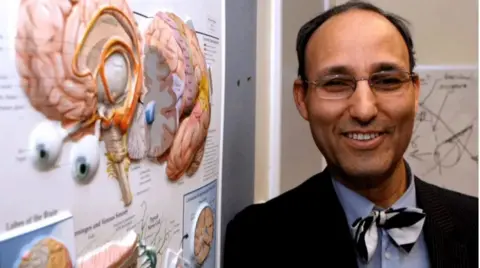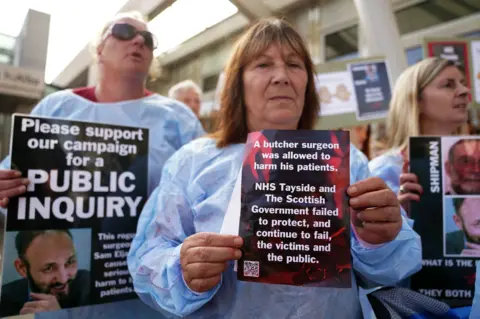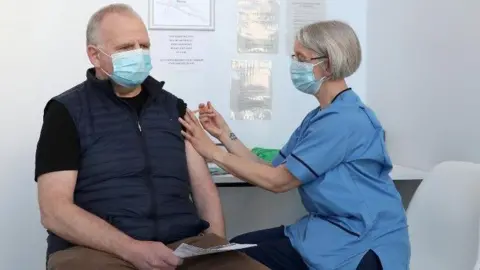Surgeon inquiry spends £1m before hearing evidence
 BBC
BBCMore than £1m has been spent on a public inquiry into a disgraced brain surgeon that has not started hearing evidence yet, new figures show.
The inquiry into Sam Eljamel, who harmed dozens of patients and left some with life-changing injuries, was launched last month and has racked up £1.08m in costs so far.
Eljame was head of neurosurgery at Dundee's Ninewells Hospital until his suspension in December 2013. He resigned a year later and is now believed to be operating in Libya.
The inquiry outlay was revealed by Holyrood's finance committee which is investigating the cost-effectiveness of public inquiries in Scotland.
New Scottish parliament research suggests the total cost of all public inquires launched over the last 18 years, in today's prices, has been £230m so far.
On 20 May, MSPs will begin their examination of what spending controls are in place to ensure the taxpayer is getting value for money from the statutory probes.
They will hear from Prof Sandy Cameron, who was a panel member on the inquiry into historic abuse of children in care in Jersey.
In his written submission, Prof Cameron said keeping on top of legal costs are a big challenge for all inquires.
He said: "It has to be recognised that inquiries are a source of substantial income for some large legal firms and as such the question arises as to the extent to which they are motivated to keep costs to a minimum and within budget".
 PA Media
PA MediaThe finance committee will also consider a written submission from the logistics and procurement support agency of the health service, NHS National Services Scotland (NSS).
In its submission, NHS NSS said the "current processes for monitoring public inquiry costs are inadequate" and revealed it has spent £3.1m in responding to public inquiries, as well as providing around £9m in legal services to other health boards for doing the same since 2021.
The health board suggest the introduction of mandatory interim recommendations in all public inquiries, as happens in the UK Covid inquiry, would help speed up improvements.
NHS NSS also suggest that an independent advisory body could be established to support Holyrood in deciding whether a public inquiry should be held, and the best way to go about it.
New Zealand approach
Alternatives to statutory inquires should also be considered, according to NHS NSS.
It points to New Zealand where a Royal Commission was established to look at the country's response to Covid.
This was chaired by an epidemiologist, with a former government minister and a treasury secretary as panel members, rather than a judge.
The New Zealand Covid inquiry, which has cost around £7m so far, started in 2022 and its terms of reference include a deadline of completing by February next year.
The Scottish Covid Inquiry has cost £34m so far and the UK Covid Inquiry is expected to top £200m.
 PA Media
PA MediaQuestions have been raised about the cost-effectiveness of the inquiries in recent years but the Scottish government, which picks up the bill for running them, said they provided important opportunities to establish facts and learn lessons.
All of the current public inquires have been supported in votes at Holyrood, as well as by families and campaigners.
The Eljamel Inquiry, headed by Lord Weir, launched its terms of reference last month and is expected to begin full hearings later this year.
The inquiry will determine whether patients were let down by failures in clinical governance, risk management, and complaints procedures, and to what extent Eljamel's private practice, research, and workload impacted on the care received by his patients within NHS Tayside.
Lord Weir said the independent inquiry would be "fair and thorough" and put patients "at the centre" of the process.
Most of the inquiry's costs to date have gone on staffing (£666,949) and legal services (£316,035).
